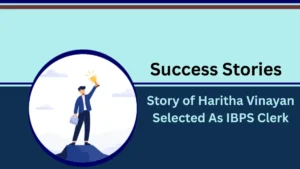Q.1. Which of the following is not correct regarding On the Job Training?
(a) The trainee learns in real environment of the job
(b) It meets the specific requirements of each trainee
(c) It is very economical
(d) It is not suitable for unskilled and semi-skilled jobs
(e) The trainee gains experience of real environment
Q.2. Which of the following is not a feature of Off-the-job training?
(a) It consists of lectures
(b) It is generally used by government and public enterprises
(c) Actual job conditions are duplicated in it
(d) It explains knowledge and skills to be trainees
(e) It is useful for orientations and safety training programmes
Q.3. Who said that Perception Is a process by which individuals organise and interpret their sensory impressions in order to give meaning to their environment?
(a) S. P. Robins
(b) Clint McKay
(c) R.P. Tomlinson
(d) T.N. Fred
(e) Stephen Kirk
Q.4. Judging people on the basis of the characteristics of the group to which they belong is called
(a) Projection
(b) Halo Effect
(c) Impression
(d) Stereotyping
(e) Selective perception
Q.5. Which of the following is a very common type of perceptual error committed by managers while evaluating the subordinates?
(a) Tendency of drawing a general impression about an individual based on a single characteristic
(b) Attributing one’s own traits or characteristics to the people being judged
(c) Forming impression of others on the first sight
(d) Tendency to judge others on limited information
(e) All of these
Q.6. Who pined that the behaviour of an individual at a particular moment is usually determined by his strongest need?
(a) Lillis
(b) Dubin
(c) Maslow
(d) Likert
(e) Botha
Q.7. Which of the following does not explain Need Hierarchy?
(a) Psychological needs
(b) Safety needs
(c) Social needs
(d) Satisfaction needs
(e) Esteem needs
Q.8. Which of the following Acts is known as the first step towards the evolution of wage policy in India?
(a) Payment of Wages Act
(b) Industrial Disputes Act
(c) Minimum Wages Act
(d) Equal Remuneration Act
(e) Safety and health Act
Q.9. Which of the following can be counted as essential (s) of an Effective Performance Appraisal System?
(a) Mutual Trust
(b) Clear Objectives
(c) Feedback and Participation
(d) Job Relatedness
(e) All of these
Q.10. In which Performance Appraisal Method, the evaluator assigns relative ranks to all the employees in the same work unit doing the same job?
(a) Confidential Report Method
(b) Free Form Method
(c) Straight Ranking method
(d) Checklist Method
(e) Critical Incidents Method





 GA Capsule for SBI Clerk Mains 2025, Dow...
GA Capsule for SBI Clerk Mains 2025, Dow...
 The Hindu Review October 2022: Download ...
The Hindu Review October 2022: Download ...
 Story of Haritha Vinayan Selected As IBP...
Story of Haritha Vinayan Selected As IBP...





